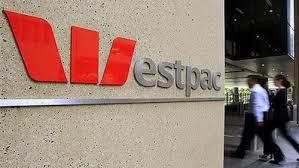Westpac Board «Devastated» by Money Laundering Claims
Westpac Banking Corp is hoping to appease investors angered by a money laundering scandal. It has implemented additional transaction monitoring, its chairman said at the Australian lender's annual shareholder meeting on Thursday.
Westpac, still reeling from the scandal and accusations of enabling child exploitation payments, could see investors vote against its proposals on executive pay and the re-election of a long-serving director. A vote against the pay proposals for top executives would make Westpac the biggest Australian company facing two years of rejected proposals in a row.
«As a Board and as individuals, we are devastated that anyone may have been exposed to the risk of harm as a result of a failing by Westpac. For this, we are truly sorry,» said chairman Lindsay Maxsted, who was quoted in a «Reuters» report.
Bombshell Lawsuit
Westpac was sued by Australian regulators three weeks ago, which claims the bank has made 23 million breaches of anti-money laundering laws. Following the country's biggest ever such scandal, the bank's CEO and compliance chief have subsequently quit.
The bombshell lawsuit has sent Westpac's shares down 8 percent in the three weeks since it was announced, as the bank could pay a fine of more than A$1 billion (S$920.5 million), analysts estimated. «Westpac is determined to resolve this matter with AUSTRAC and to urgently fix its issues around financial crime compliance,» the bank said in a statement.
Executive Pay
Under Australian law, if more than a quarter of shareholders vote against a company's executive pay at back-to-back annual meetings, they may hold another vote at the meeting to remove the whole board. That «board spill» motion requires support from 50%.
Fund managers say more than a quarter of shareholders may vote against Westpac's executive pay because of grassroots outrage over the payments scandal.
Board Unlikely Ousted
However, shareholders of Australia's oldest and second-largest bank are unlikely to oust the board at the annual shareholders' meeting as such moves are not favourable, investors and analysts said.
«We acknowledge we should have implemented more robust transaction monitoring earlier than we did. This would have generated more suspicious matter reports to AUSTRAC,» said Maxsted, who brought forward his retirement in the heels of the scandal.



























